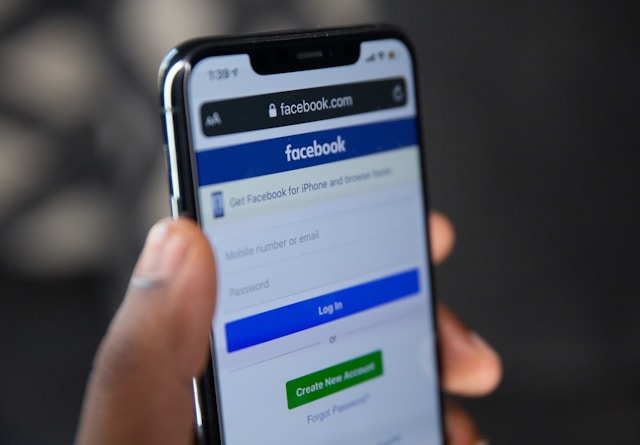Have you ever had a casual conversation about a product, only to see an ad for it on Facebook minutes later? It’s an experience so common that it’s become a running joke, and a growing suspicion: Is Facebook listening to you through your phone’s microphone? While the idea sounds like a digital-age horror story, the truth is more complex and less sinister than many think.
In this article, we’ll explore where this myth came from, what Facebook says about it, and how targeted ads really work. We’ll also break down some psychological tricks that make it feel like you’re being eavesdropped on. By the end, you’ll have a clear answer to the question: Is Facebook really listening?
Where the Rumor Began
The belief that Facebook is listening to your private conversations has been around for years. It gained momentum as more people began noticing eerily relevant ads on their feeds. You might chat with a friend about needing new shoes, and hours later, a Nike ad pops up. Coincidence? It certainly doesn’t feel like one.
These stories often go viral on social media, with users sharing anecdotes of uncanny ad placements. Some have even tested it, saying trigger words aloud and waiting to see if related ads appear. The result? Mixed and mostly inconclusive—but the myth continues to spread.
What Facebook Says
Facebook has consistently denied the claim that it uses microphones to eavesdrop on conversations for ad targeting. In a 2016 statement, the company said:
“Facebook does not use your phone’s microphone to inform ads or to change what you see in News Feed.”
They’ve reiterated this stance multiple times since, even as users remain skeptical. According to Facebook’s official data policy, the company collects information you provide directly (posts, photos, comments), as well as data about your behavior on and off the platform—but not audio recordings from private conversations.
Is It Technically Possible?
Yes, from a purely technical standpoint, apps can request permission to access your device’s microphone. Many apps—including Facebook and Instagram—ask for microphone access for specific features like recording videos or using voice chat. But here’s the important part: this access is governed by your phone’s operating system, which means any unauthorized use of the microphone would likely leave a trace, violate app store policies, and trigger privacy watchdogs.
If Facebook were caught secretly recording users, it would face serious legal consequences and lose user trust—an enormous risk for a company that already faces public scrutiny over data privacy.
How Targeted Ads Actually Work
So if Facebook isn’t listening to you, how does it show such incredibly relevant ads?
The answer lies in data. Facebook tracks an enormous amount of information about you, including:
-
Pages you like and interact with
-
Websites you visit (thanks to tracking pixels)
-
What you search for online
-
Your location and check-ins
-
Your activity on Instagram (also owned by Facebook)
-
Data from third-party apps and advertisers
This vast ecosystem of data allows Facebook to build detailed profiles and serve highly targeted ads. You don’t need to say “I’m thinking about buying a grill” for Facebook to know you’re in the market for one—it may already know based on your recent online behavior, product views, or shopping habits.
The Role of Third-Party Data Brokers
In addition to its own data collection, Facebook works with third-party data brokers. These companies gather information from your credit card purchases, public records, and loyalty programs, then sell it to advertisers. That data is then used to refine ad targeting even further.
This method is perfectly legal, although many users are unaware of how much of their personal information is accessible in this way. When people wonder how Facebook knows so much about them, they’re often unaware that it’s not just Facebook doing the tracking.
Psychological Biases at Play
There’s also a psychological explanation for why so many people believe Facebook is listening to them: confirmation bias and the Baader-Meinhof phenomenon.
-
Confirmation bias is the tendency to notice and remember information that supports your beliefs. If you think Facebook is spying on you, every ad that aligns with a recent conversation reinforces that belief—even if it’s just coincidence.
-
The Baader-Meinhof phenomenon (also known as frequency illusion) is when something you’ve recently noticed or talked about suddenly seems to appear everywhere. It’s not that it’s appearing more—it’s that you’re noticing it more.
Together, these biases make it feel like your conversations are being monitored, when in reality, your brain is just connecting the dots more intensely than usual.
What Experts and Investigations Say
Over the years, multiple journalists and tech experts have tried to determine whether Facebook microphone spying is real. Reputable investigations from sources like Wired, Vice, and NPR have found no credible evidence that Facebook uses microphones for ad targeting.
Cybersecurity experts point out that constantly monitoring billions of users’ conversations would require massive infrastructure, and would be incredibly difficult to hide. In contrast, using behavioral data is much more efficient—and just as effective for advertisers.
So, Is Facebook Listening?
The short answer: No, Facebook is not listening to you through your microphone. The myth is rooted in coincidence, misunderstanding, and a lack of awareness about how digital advertising works.
That said, Facebook is still collecting a staggering amount of data about you—just not from your microphone. It tracks your activity across apps and websites, uses your interactions to predict behavior, and collaborates with data brokers to deliver laser-targeted ads. So while your conversations may be safe, your privacy is still very much at stake.
What You Can Do to Protect Your Privacy
If you’re concerned about data tracking, here are a few steps you can take:
-
Review app permissions on your phone and disable microphone access for apps that don’t need it
-
Use private browsing modes or ad blockers
-
Adjust ad preferences in your Facebook account settings
-
Limit third-party tracking by using tools like Apple’s App Tracking Transparency or browser extensions like Privacy Badger
Final Thoughts
The idea that Facebook is listening to your conversations is one of the most persistent modern myths but it’s not supported by evidence. Still, the reality behind how Facebook tracks you is just as fascinating. Instead of focusing on the microphone myth, users should pay closer attention to the digital footprints they leave behind every day.









